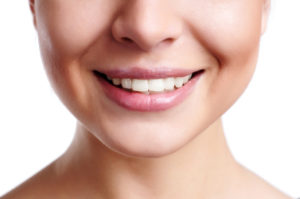 Everyone wants a beautiful smile and a mouth that smells fresh, which is why you should exercise good oral hygiene. Good oral hygiene entails a number of practices that:
Everyone wants a beautiful smile and a mouth that smells fresh, which is why you should exercise good oral hygiene. Good oral hygiene entails a number of practices that:
● Keep your teeth clean and free of any debris
● Keep your gums looking pink with no pain or bleeding when you brush/floss
● Give you fresh breath
A healthy mouth is also one that is free of any pain or infection, with no untreated tooth decay. A healthy mouth should be moist with enough saliva, and no signs of ulcers, lumps, or unusual color on/under the tongue, gums, or cheeks.
How To Improve Your Oral Hygiene
A healthy mouth allows you to eat what you like; supports your cheeks and lips for good face structure, contributes to good speech, and enhances your appearance. Oral hygiene seeks to maintain existing teeth and gums in a functional and comfortable state. It comprises both at-home care and dental office care. The former includes:
● Flossing daily and brushing twice a day using a soft brush and a fluoride toothpaste
● Practicing good brushing technique: you should hold the toothbrush at a slight angle, such that the bristles are aimed toward the gumline. Then, gently brush using short back-and-forth motions. Clean the inside, outside, and chewing surfaces of the teeth, and don’t forget to brush the tongue, as well.
● Using an interdental brush to clean between the teeth
● Rinsing your mouth with mouthwashes as advised by your dental hygienist to prevent decay and gum disease
● Avoiding sugary and acidic foods and drinks, including carbonated drinks and citrus fruits since they damage tooth enamel
● Getting fissure sealants for your children to help prevent tooth decay
To maintain good oral hygiene, it is important to visit your dentist on a regular basis. During a dental visit, your dentist or oral hygienist will not only perform professional cleaning to remove tartar (plaque buildup) that may cause gum disease, but also monitor your health. Your dentist can educate you on good oral hygiene techniques so you target areas that may require special attention during daily cleaning.
Additionally, some dental problems don’t show any symptoms until they are in their advanced stages. Fortunately, dental checkups can allow for early diagnosis of gum disease, tooth decay, and even different types of oral cancer. Treating conditions in their early stages is less painful, less worrisome, and less expensive compared to if you allowed them to advance.
Let’s Talk the Basics: What Is Good Oral Hygiene?
This entry was posted in Educational and tagged good oral hygiene tips, how to improve oral hygiene, what is good oral hygiene. Bookmark the permalink.